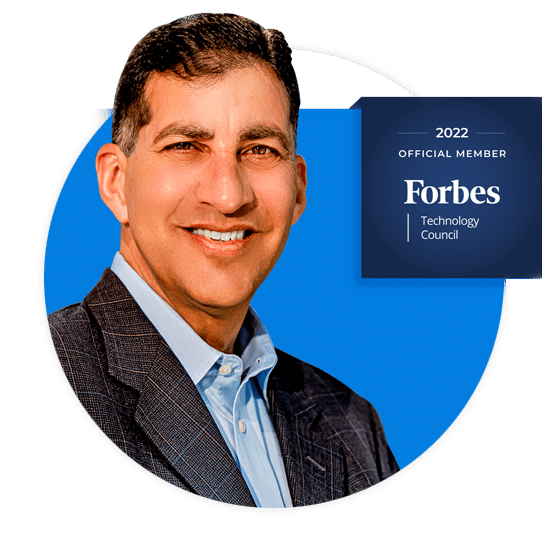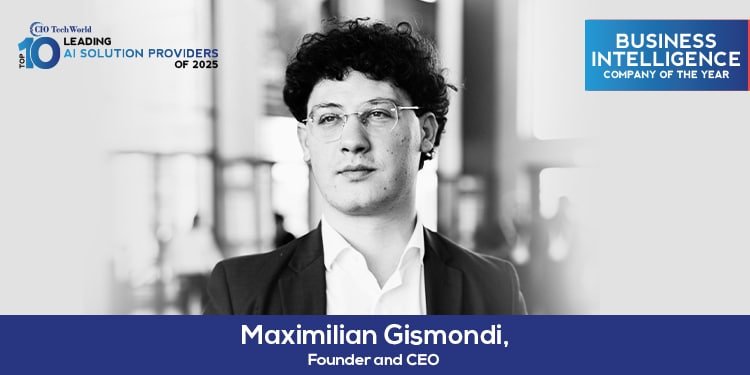Robert Blalock’s recipe for ascending the CXO ladder revolves around never letting a career opportunity slip by, actively networking, and seeking out mentors within your workplace. In his initial role at Automation Research Systems (ARS), where he joined shortly after graduating, he functioned as a software tester. It was during this phase that he encountered a mentor who adeptly guided him through the intricacies of the corporate environment.
His journey led him to Lucent Technologies, where he crossed paths with his subsequent mentor, Thomas Lord. At that time, Lord held the position of Director of CRM IT at the company. Through his interactions with Lord, Blalock gained invaluable insights into the dynamics of corporate operations and the art of proficient team management.
While at Sage Healthcare, Blalock’s path intersected with yet another mentor, Michelle Decker. She was then the Director of the Business Operations Office. Her guidance focused on refining his skills in building professional relationships, while equally underscoring the necessity of crafting exceptional executive presentations and mastering the art of creating concise reports.
In essence, every opportunity Blalock seized introduced him to a mentor whose guidance proved indispensable on his journey from a software tester to a Director of Software Engineering, Senior Project Manager, Vice President of Professional Services, and ultimately, CIO. Blalock’s career trajectory stands as an inspiring example for aspiring executives striving to attain CXO positions.
Describe your career progression from the start to where you are and what were pivotal decisions, moves you made, circumstances, and other facts that facilitated your growth.
I have more than 20 years of success across the technology industry with broad areas of expertise including HealthTech, FinTech, product management, information technology strategy, professional services, governance, and strategic planning.
I have my bachelor’s degree in computer science from Tennessee State University. I received my master’s in software engineering from Illinois State University. I worked in a manufacturing plant during graduate school where I was 1st introduced to quality assurance and its importance. This led to my 1st job out of college at a company called Automation Research Systems (ARS) where I was hired as a software tester working on government contracts at MacDill Airfoce Base in Tampa, FL. I also obtained my 1st career mentor that helped me understand how to navigate in a corporate setting. My experiences at the manufacturing plant also gave me a good insight into how to analyze issues which allowed me to move up to a Quality Assurance Manager role within a year of joining the company. This was my 1st experience in a management role with responsibilities of dealing with team members and performance. Also, during this time, I worked as an adjunct professor at the University of South Florida teaching Software Design and Engineering principles. I gained my 2nd professional mentor in the Dean of Engineering which provided insight into the world of academia and helped strengthen my network.
My mentor at ARS decided to retire which brought me to a decision point in my career of staying in the government sector or moving to the commercial sector. After discussions with mentors and family, I decided to take an opportunity to work for a commercial company call Applied Benefits Solutions (ABS), which offered more growth opportunities. I joined the company as the SDLC coordinator which allowed me to use concepts I taught at USF versus just book theory. I didn’t have any direct reports and I had to learn how to use influence since I didn’t have any direct reports. I also learned that I had a great tool in my box with my ability to build relationships. I didn’t establish a mentor at ABS since I hadn’t formally recognized the importance even though I had mentors in my previous roles. Relationship building became my foundation for getting things done and learning the importance of who you know.
Based on the relationships I established a colleague who left ABS reached out and recruited me to follow her to Lucent Technologies. I agreed and joined Lucent as a Project Manager and gained one of the most influential mentors I’ve had in my career, Thomas Lord. I learned more about how to interact from a corporate perspective and the proper way to treat your team than I could imagine. It was my introduction to the world of project management, but it was also my real exposure to what type of leader I wanted to be in tech. He taught the importance of business acumen, data literacy, and cultivating a community. On top of several career discussions, my mentor provided insight on pursuing careers in hardware or software in the tech world. Based on those discussions I chose a leadership path of software development through project management, and I was promoted to Sr. Project Manager gaining responsibilities of supporting 13 call centers around the globe. My duties encompassed managing all disciplines in the development life cycle for all application development and support including analysis, design, development, quality assurance, implementation, and support. This decision was my 1st step toward senior leadership. During my time at Lucent, my mentor guided several opportunities my direction which led me to a management path outside of his organization. I will never forget him saying to me when I took the role that this is an opportunity to spread your wings and spread our philosophy. I stayed with Lucent for a few years and then took an opportunity with WebMD to help build a PMO office.
Shortly after joining WebMD the company was split and acquired by Sage Healthcare. I became a director and was fortunate to meet another influential mentor in my career, Michelle Decker. Michelle was a savvy leader that reinforced and coached me on the refinement of relationship building but equally as important emphasized my skills for developing executive presentations and concise reporting. I was provided opportunities to present to senior leaders frequently. I also learned the pitfalls of corporate dysfunction and layoffs, which taught me a valuable lesson in knowing how to read corporate politics and its impacts. After Sage Healthcare, I joined HealthPlan Services (HPS), which at the time was very fast-paced and a breeding ground for exposure and opportunity.
During my 12-year tenure at HPS, I went from Director of Client Engagement to VP of several different departments such as Engagement Manager, Professional Services, and Product Management. Along with managing fully staffed teams with all IT disciplines, I gained experience in banking solutions, vendor management, contracting, security/compliance, on/near/offshore management, and customer relationships. I was formally trained in Agile development, Product Management, and Executive Leadership. Most importantly I learned how to orchestrate conflict from a team level all the way to senior leadership. There was no shortage of fires or complex customer issues which allowed me to hone my communication skills and implement active wisdom. My journey of experiences built a foundation for my current role as CIO of Benebay Corp, where I’m responsible for the strategic direction and overall management of all information technology functions, including data management and security, help desks, communications networks, program development, and computer system operations.
What are the key skills and qualifications that aspiring tech executives in the tech industry should focus on developing to enhance their career prospects?
- Business Acumen
- Networking / Relationship building
- Mentorship
- Executive Leadership Development
- Communication, Collaboration, and Delegation skills
- Succession Planning and its importance
- Data Storytelling – the data doesn’t lie
- Relevant technology trends
- Understanding different cultures
- Strategic vs tactical thinking (knowing the difference)
What are some key milestones or achievements that tech executives should aim for at various stages of their career to demonstrate their growth and readiness for higher-level roles?
- Certifications for their discipline
- Executive Leadership classes and completion
- Number of people managed.
- $ responsibilities
How important is it for tech executives to actively seek out mentorship or coaching opportunities to advance their careers? What benefits can they derive from such relationships?
Seeking mentorship is a fundamental tool that can allow you to create a community to support your career goals. Mentorship helps you identify your blind spots in a safe space. All great leaders have had mentors and guidance no one makes it on their own. All mentors help with the maturity process providing valuable insight into personal and professional development.
In your experience, what role does professional networking play in the career progression of tech executives? How can tech executives effectively build and leverage their networks?
Professional networking is vital to a successful career path. The adage it’s not what you know but who you know is true in a lot of ways. Networking gives you the heads up on opportunities organically and allows free advertisement of your skill set.
Are there any specific certifications, advanced degrees, or executive education programs that can significantly enhance the career prospects of tech executives in the tech industry? Which ones would you recommend?
- Regional Leadership Forum (RLF)
- Executive Regional Leadership Forum (ERLF) – Can only participate if completed its predecessor.
Can you share any examples of notable tech executives who have successfully transitioned from one role (e.g., CIO) to another (e.g., CEO) within the same organization or industry? What factors contributed to their success?
I know of one in particular that went from CIO to CEO. His business acumen was beyond reproach. He knew the business as well as anyone but could provide technical solutions to address common business problems.
How important is it for tech executives to cultivate a personal brand and establish thought leadership within the industry? What are some effective ways for tech executives to showcase their expertise and gain visibility?
Very important thought leadership drives confidence from peers and colleagues, which leads to being considered a subject matter expert.
Lastly, what advice would you give to aspiring tech executives who are looking to accelerate their career progression and make a lasting impact in the tech industry?
- Network, Network, Network
- Know the business your in
- Be an active listener and servant leader
- Know how to orchestrate conflict

As a visionary Business and Technology Leader, I bring a proven track record of driving innovation, fostering collaboration, and delivering exceptional results in fast-paced and dynamic environments. I have honed outstanding skills in articulating a compelling vision and rallying active support from internal executives, development teams, and client business and IT leadership. I am proud to be a member of both the Forbes Technology Council and HITEC (Hispanic Technology Executives Council), which underscores my commitment to being at the forefront of industry trends and developments.
My special talent is demonstrating value to clients at all touch points – I instill these concepts in my teams.








